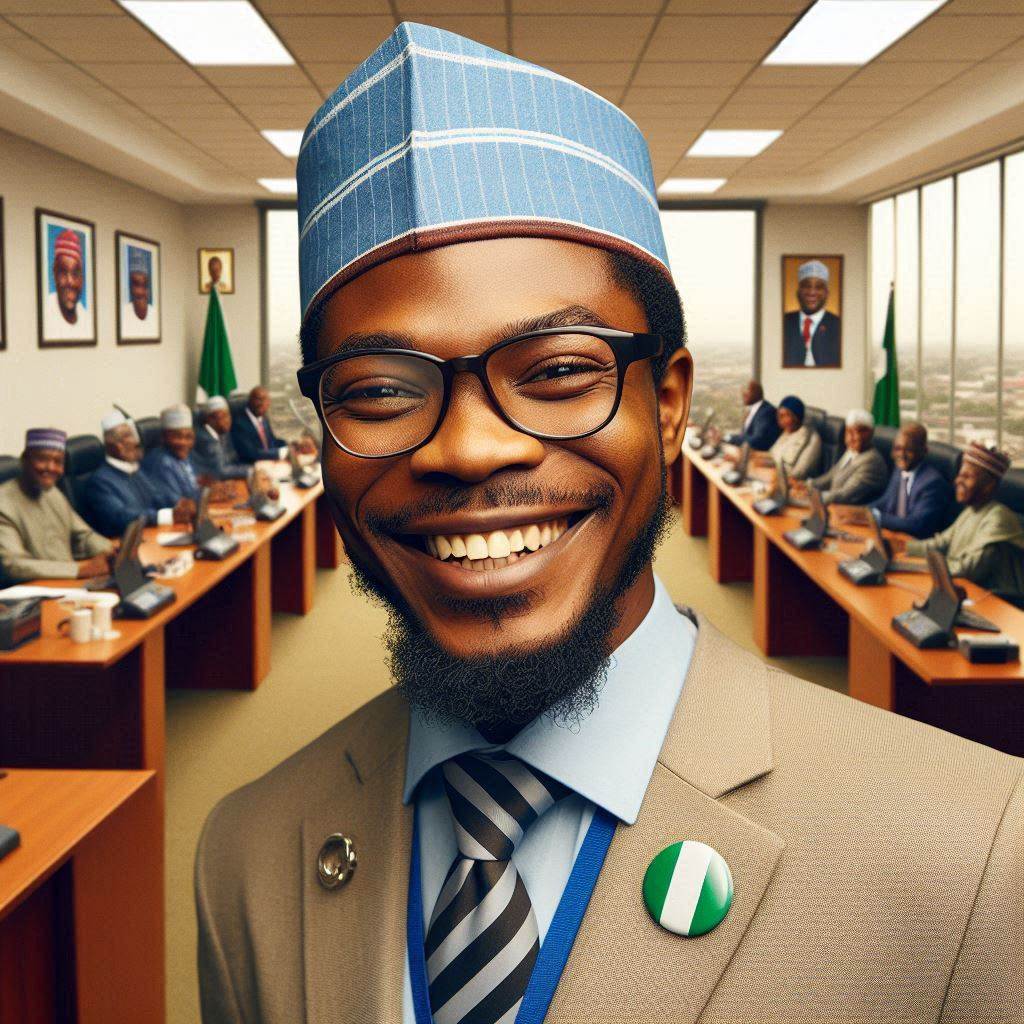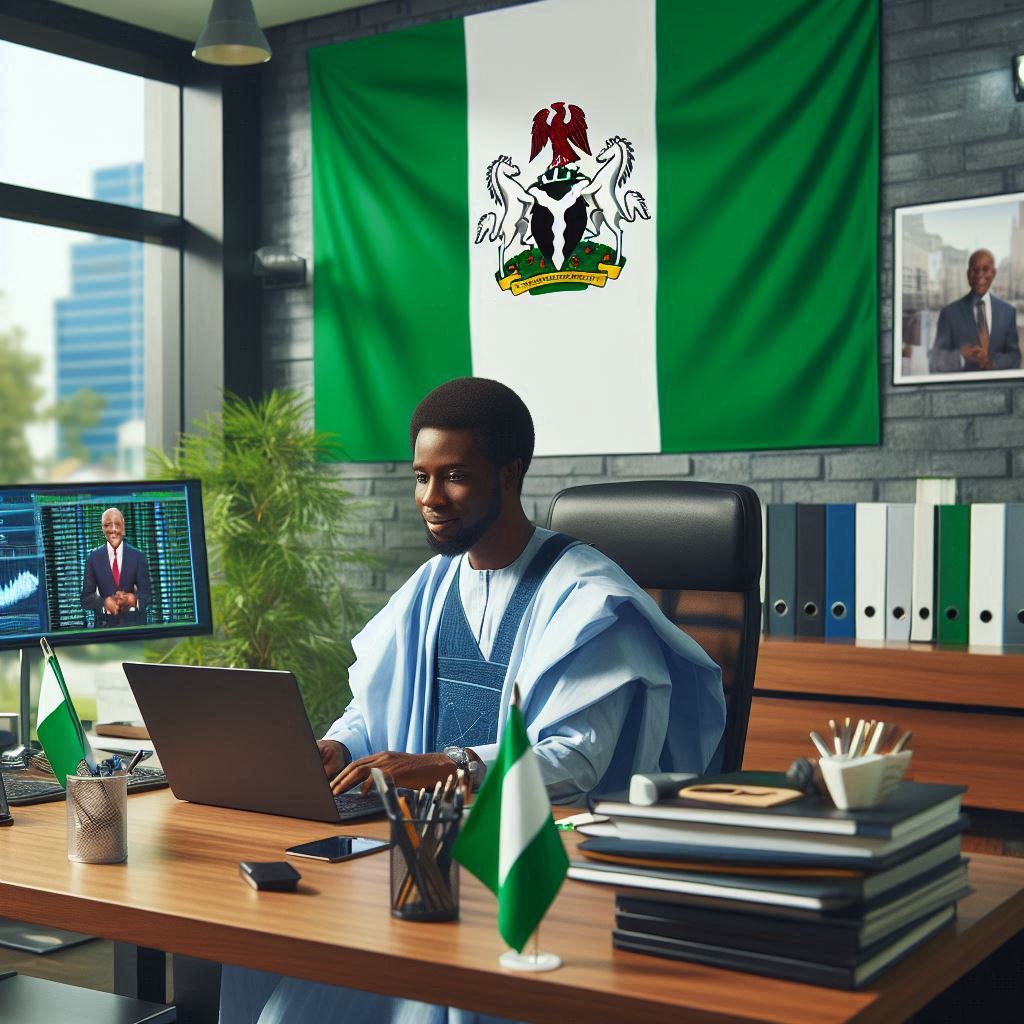Introduction
International politics, the arena where nations interact and negotiate, is pivotal for Nigeria’s global engagement.
Understanding international politics is essential as it delineates the diplomatic, economic, and security dimensions that shape Nigeria’s place in the world.
For Nigerians, comprehending international politics is crucial for several reasons.
Firstly, it provides insight into how global events influence the nation’s economy, security, and development.
Whether it’s trade agreements, security alliances, or global crises, international politics directly impacts Nigeria’s well-being.
Secondly, Nigeria’s active participation in global affairs demands a nuanced understanding of international dynamics.
From peacekeeping missions to climate change negotiations, Nigeria’s role on the world stage requires informed decision-making.
Books serve as indispensable tools for acquiring knowledge about international politics.
They offer comprehensive analyses, historical contexts, and diverse perspectives.
Through books, Nigerians can delve into the intricacies of international relations, gaining valuable insights into the complexities of global affairs.
Moreover, books provide a platform for experts to share their insights, fostering critical thinking and informed opinions among readers.
Theories of International Politics
In the realm of international politics, several key theories shape our understanding of how nations interact with one another. It is essential for Nigerians to grasp these theories to effectively navigate global affairs.
Realism
Realism is a theory that emphasizes the competitive and conflictual nature of international relations. It posits that states are primarily motivated by self-interest and seek to maximize their power and security.
- Recommended Book: “The Tragedy of Great Power Politics” by John Mearsheimer
- Recommended Book: “Morgenthau’s Politics Among Nations” by Hans Morgenthau
By studying realism, Nigerians can better understand the aggressive actions of other states and develop strategies to protect their national interests in a competitive global environment.
Liberalism
Liberalism, on the other hand, is a theory that emphasizes cooperation, interdependence, and the potential for peaceful resolution of conflicts. It believes in the importance of institutions and norms in shaping international relations.
- Recommended Book: “The Democratic Peace and Territorial Peace” by Michael Doyle
- Recommended Book: “Liberal Leviathan” by G. John Ikenberry
By exploring liberalism, Nigerians can understand the value of diplomacy, alliances, and multilateral cooperation in promoting peace and stability in the international system.
Constructivism
Constructivism is a theory that focuses on the role of ideas, identities, and social norms in shaping states’ behaviors and interactions. It argues that international politics is not just about power but also about shared beliefs and values.
- Recommended Book: “Identity and Violence: The Illusion of Destiny” by Amartya Sen
- Recommended Book: “Social Theory of International Politics” by Alexander Wendt
By delving into constructivism, Nigerians can gain insights into how cultural differences, historical narratives, and mutual perceptions influence diplomatic relations and conflict resolution on the global stage.
Overall, a comprehensive understanding of these key theories of international politics can equip Nigerians with the necessary tools to navigate the complexities of global affairs, protect their national interests, and contribute meaningfully to the international community.
Read: Communication Arts: Job Prospects and Salaries
Historical Perspectives
Understanding the history of international politics is essential for grasping current events on a global scale.
By delving into the past, we can gain valuable insights into the complexities of international relations and the forces that shape our world today.
- Explore the history of international politics and its impact on current events
- Recommend books that focus on historical events that shaped the global landscape
- Discuss the significance of historical knowledge in understanding international relations
The Importance of Historical Context
One cannot truly comprehend international politics without acknowledging the historical context in which decisions are made and conflicts arise. The past actions of nations often have far-reaching consequences that reverberate into the present.
Books to Consider
For those seeking a deeper understanding of the historical foundations of international politics, several books offer valuable insights and perspectives
- “The Origins of Totalitarianism” by Hannah Arendt: delves into the rise of totalitarian regimes in the 20th century and their impact on global politics
- “The Guns of August” by Barbara Tuchman: examines the events leading up to World War I and the political miscalculations that fueled the conflict
- “Diplomacy” by Henry Kissinger: provides a comprehensive overview of diplomatic history and the strategies employed by world leaders throughout the centuries
These books not only shed light on key historical events but also offer valuable lessons that can be applied to contemporary international relations.
Understanding Historical Patterns
By studying the historical patterns of international politics, we can identify recurring themes and trends that help us anticipate future developments. This knowledge equips us with a more nuanced understanding of complex global issues.
Historical perspectives are crucial for comprehending the intricacies of international politics. By immersing ourselves in the past, we can gain a deeper appreciation for the complexities of the present and make more informed decisions about the future.
Read: Digital Media Trends in Communication Arts
Geopolitics and Globalization
Geopolitics refers to the study of how geography and politics interact on the global stage. It involves analyzing how nations use their geographic locations, resources, and power to achieve their political objectives.
Geopolitics is essential in understanding the dynamics of international relations and the competition for power among states.
Globalization, on the other hand, is the process of increased interconnectedness and interdependence among countries as a result of advancements in technology, communication, and trade.
It has led to the blurring of national boundaries and the creation of a more interconnected world.
Books on Geopolitics and Globalization
- “The Revenge of Geography” by Robert D. Kaplan: This book explores how geography impacts global politics and the strategies nations use to navigate geopolitical challenges.
- “The Post-American World” by Fareed Zakaria: Zakaria discusses how the rise of other powers, such as China and India, is shaping the new world order and the future of globalization.
- “The New Silk Roads” by Peter Frankopan: Frankopan examines the significance of the ancient Silk Roads and how they are being revived in the current era of globalization.
These books provide valuable insights into the complex interactions between geography, politics, and economics in the modern world. They shed light on the strategies nations employ to secure their interests and influence global affairs.
Impact on Nigeria
Geopolitics and globalization have significant implications for Nigeria’s position in the international community. As a country located in West Africa, Nigeria’s geopolitical importance stems from its large population, abundant resources, and strategic location.
Geopolitical factors such as regional conflicts, resource competition, and security threats shape Nigeria’s foreign policy decisions and its relationships with neighboring countries and global powers.
The country’s role in regional organizations like the African Union and ECOWAS is influenced by these geopolitical considerations.
Globalization has also had a profound impact on Nigeria’s economy and society. The country’s participation in the global market has led to both opportunities and challenges.
Increased trade and investment have fueled economic growth, but they have also exposed Nigeria to fluctuations in the global economy and competition from foreign industries.
Additionally, globalization has facilitated the spread of ideas, cultures, and technologies, shaping Nigeria’s domestic policies and societal norms. The country’s integration into the global community has influenced its approach to development, governance, and international cooperation.
Therefore, Nigerians must understand geopolitics and globalization to navigate international relations complexities and position their country effectively.
Studying the topics covered in the recommended books enables Nigerians to gain valuable insights into shaping the world.
Read: Famous Nigerian Alumni of Communication Arts Programs

Contemporary Issues in International Politics
Today, the world faces numerous challenges that require global cooperation and understanding. From climate change to terrorism and migration, these issues impact nations across the globe, including Nigeria.
It is crucial for Nigerians to educate themselves on these topics to navigate the complexities of international relations effectively.
Global Challenges and Recommended Books
- Climate Change: “This Changes Everything: Capitalism vs. The Climate” by Naomi Klein provides insights into the link between economic systems and environmental degradation.
- Terrorism: “The Looming Tower: Al-Qaeda and the Road to 9/11” by Lawrence Wright offers a comprehensive look at the rise of terrorist organizations.
- Migration: “The Age of Migration: International Population Movements in the Modern World” by Stephen Castles explores the dynamics of migration and its impact on societies.
These books offer valuable perspectives on pressing global issues and help readers understand the complexities surrounding them. By exploring these topics from different angles, individuals can form informed opinions and contribute meaningfully to discussions on international politics.
Relevance of Staying Informed for Nigerians
For Nigerians, staying informed on contemporary issues in international politics is essential for several reasons:
- Understanding the Impact: By being aware of global challenges, Nigerians can assess how these issues affect their country and communities.
- Enhancing Decision-Making: Informed individuals can make better decisions, whether in business, governance, or personal lives, by considering international trends and developments.
- Building Connections: Knowledge of global issues allows Nigerians to engage in meaningful conversations with people from different backgrounds and cultures, fostering international understanding and cooperation.
- Promoting Advocacy: Armed with information, Nigerians can advocate for policies that address global challenges effectively, contributing to positive change on a larger scale.
Ultimately, staying informed empowers Nigerians to navigate an interconnected world and actively shape the future in international politics.
By educating themselves on diverse perspectives and engaging in informed discussions, individuals can make a significant impact both locally and globally.
Read: Developing Critical Thinking in Language Arts
Learn More: Nigerian Languages in Education: Curriculum and Impact
Discover More: Women in Arabic and Islamic Studies Nigeria
Diplomacy and Foreign Policy
Understanding the role of diplomacy and foreign policy is crucial for navigating the complex landscape of international relations.
Diplomacy involves communication, negotiation, and relationship-building between different countries to achieve mutual goals. Foreign policy, on the other hand, is a government’s strategy for interacting with other nations to promote its national interests.
Book Recommendations on Diplomatic Strategies and Foreign Policy Analysis
- “Diplomacy” by Henry Kissinger: This classic book explores the art of diplomacy and provides insights into the complexities of international relations.
- “The Tragedy of Great Power Politics” by John Mearsheimer: Mearsheimer’s work offers a realist perspective on foreign policy and power dynamics among major nations.
- “The Wisdom of Crowds” by James Surowiecki: Although not focused solely on diplomacy, this book introduces the concept of collective intelligence and its implications for decision-making in international relations.
- “The Future of Power” by Joseph Nye: Nye’s book discusses the changing nature of power in global politics and the role of soft power in diplomacy.
- “Confessions of an Economic Hitman” by John Perkins: While not a traditional diplomatic or foreign policy book, Perkins’ memoir sheds light on the economic motivations behind international relations.
Benefits of Understanding Diplomacy for Nigeria’s Diplomatic Efforts
For Nigeria, a country with a rich history of engaging in international affairs, grasping the intricacies of diplomacy can significantly impact its diplomatic endeavors.
Here are some ways in which a deeper understanding of diplomacy can benefit Nigeria:
- Enhanced Negotiation Skills: Diplomatic negotiation is a key component of resolving conflicts and advancing national interests.
- Effective Communication: Clear and strategic communication is essential in conveying Nigeria’s positions on various global issues.
- Building Alliances: Diplomacy can help Nigeria forge partnerships with other countries to address common challenges and pursue shared goals.
- Conflict Resolution: Understanding diplomatic strategies can aid Nigeria in navigating conflicts and promoting peace in the region and beyond.
- Promoting Economic Interests: Diplomacy plays a crucial role in facilitating trade agreements and economic partnerships that benefit Nigeria’s economy.
- Fostering Cultural Exchange: Cultural diplomacy can strengthen Nigeria’s image abroad and promote mutual understanding with other nations.
In review, delving into books that explore diplomacy and foreign policy can equip Nigerians with the knowledge and insights necessary to engage effectively in international relations.
Nigeria can enhance its diplomatic efforts and contribute positively to the global community by understanding diplomatic strategies and foreign policy analysis nuances.
Discover More: Best Private Music Academies in Nigeria
Gain More Insights: Decolonizing History Curriculum in Nigerian Universities
Explore Further: Faculty Spotlight: Experts in African and Asian Studies
Personal Development and Professional Growth
When it comes to personal development and professional growth, reading books on international politics plays a crucial role. Here are some key points to consider
Transform Your Career with Expert Guidance
Get personalized mentorship consulting that’s tailored to your unique path. Our expert advice is actionable and exclusive.
Get StartedValue of Reading Books on International Politics for Personal Growth
- Gain in-depth knowledge about global affairs and trends
- Develop a broader perspective on world issues
- Improve critical thinking and analytical skills
- Enhance cultural awareness and cross-cultural communication
- Expand intellectual horizons and stimulate intellectual curiosity
How Knowledge of International Politics Enhances Career Opportunities for Nigerians
- Opens doors to diverse career paths in diplomacy, foreign affairs, and international organizations
- Provides a competitive edge in the job market, especially in multinational companies
- Equips individuals with skills to navigate complex global business environments
- Facilitates networking opportunities with professionals in the field
- Demonstrates a commitment to continuous learning and professional development
Encouragement to Prioritize Self-Education through Books on International Politics
- Make learning a lifelong journey to stay relevant in a rapidly changing world
- Invest in personal growth and intellectual stimulation through reading
- Set aside dedicated time for self-education and personal enrichment
- Create a habit of reading books on diverse subjects, including international politics
- Embrace the benefits of self-improvement and continuous learning for personal and professional success
Generally, incorporating books on international politics into your reading list can significantly contribute to personal development and professional growth.
By expanding your knowledge of global affairs, you not only enhance your understanding of the world but also open doors to new career opportunities.
Remember, self-education is a powerful tool for empowering yourself and staying ahead in today’s competitive landscape.
Delve into the Subject: Interview with Prominent Nigerian Art Educators
Discover More: Overview of Christian Religious Studies in Nigeria
Conclusion
In a world increasingly interconnected, understanding international politics is not just beneficial but imperative for Nigerians.
Essential books serve as gateways to this vital knowledge.
They provide insights into diplomatic strategies, geopolitical dynamics, and global trends that directly impact Nigeria’s position and interests on the world stage.
Readers are encouraged to delve into recommended books to deepen their understanding of global affairs.
By exploring diverse perspectives and analytical frameworks offered in these texts, Nigerians can gain a comprehensive understanding of the complexities shaping the international arena.
Moreover, the need for Nigerians to stay informed and engaged in international politics is ongoing.
Maintaining awareness and actively participating in global discussions and decision-making processes become increasingly essential as challenges evolve and opportunities arise globally.
Through continuous learning and engagement, Nigerians can effectively navigate the complexities of international relations and contribute meaningfully to global cooperation and development.




